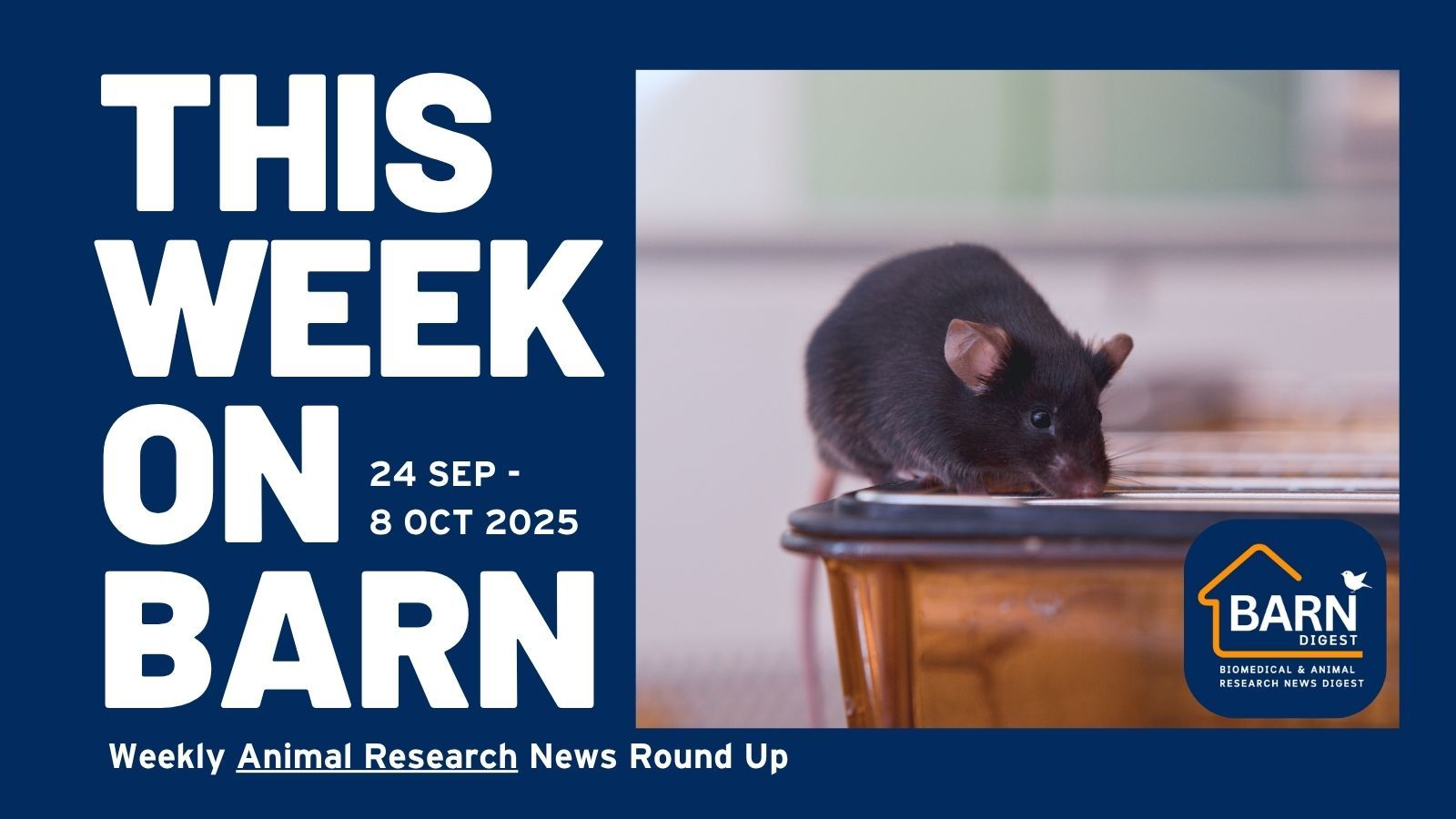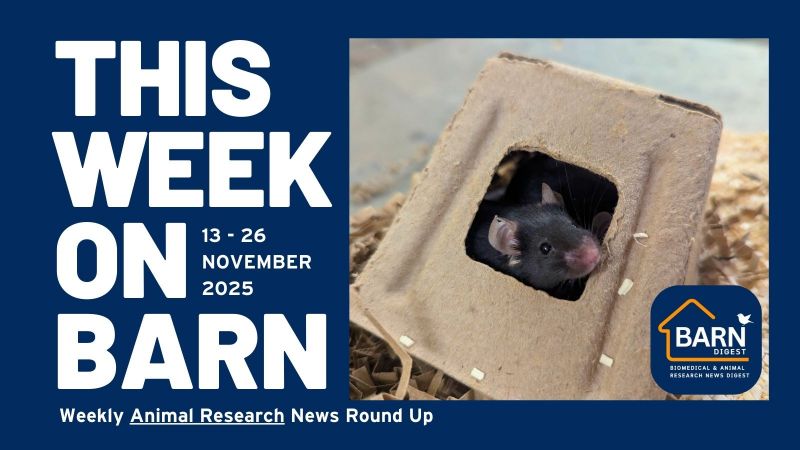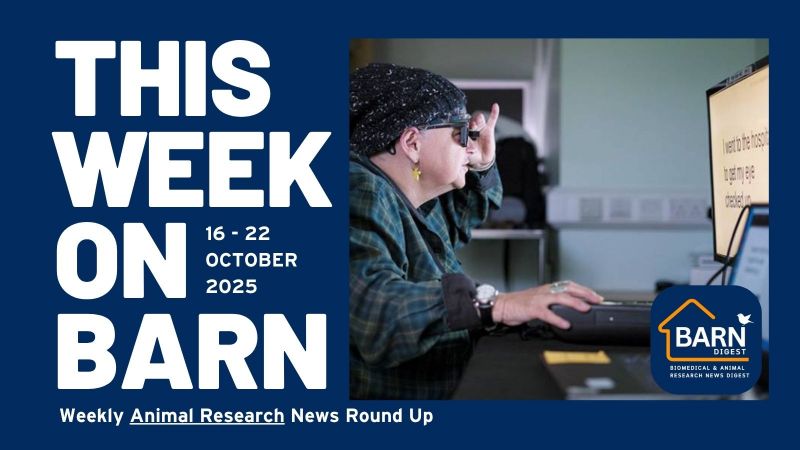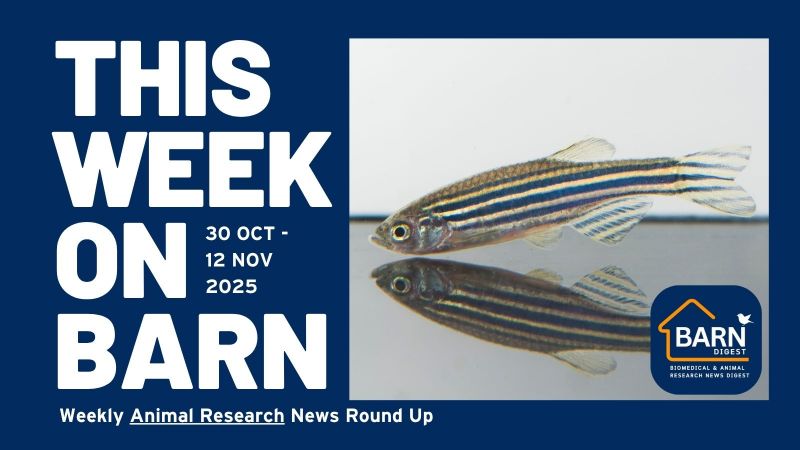
The Biomedical Animal Research News (BARN) Digest collates animal research news from UAR’s 150+ member organisations into one, easy to access, feed. These animal research related stories include topics such as: medical studies and advancements; animal welfare and 3Rs news; funding, regulatory, and policy news; and conservation and environmental research that involves animal testing.
Each week, we pick the most interesting, groundbreaking, and important news to feature in a weekly news roundup. In this round up we feature news stories from 24 September - 8 October 2025.
View BARN to see daily news updates from UAR members.
DISCOVERY / BASIC RESEARCH
Parkinson’s ‘trigger’ directly observed in human brain tissue for the first time
UNIVERSITY OF CAMBRIDGE, UCL, THE FRANCIS CRICK INSTITUTE | MICE, RABBITS, HUMANS
This research project used monoclonal antibodies raised in mice and rabbits, as well as human brain samples.
"Scientists have, for the first time, directly visualised and quantified the protein clusters believed to trigger Parkinson’s, marking a major advance in the study of the world’s fastest-growing neurological disease.
These tiny clusters, called alpha-synuclein oligomers, have long been considered the likely culprits for Parkinson’s disease to start developing in the brain, but until now, they have evaded direct detection in human brain tissue.
Now, researchers from the University of Cambridge, UCL, the Francis Crick Institute and Polytechnique Montréal have developed an imaging technique that allows them to see, count and compare oligomers in human brain tissue, a development one of the team says is “like being able to see stars in broad daylight.
Their results, reported in the journal Nature Biomedical Engineering, could help unravel the mechanics of how Parkinson’s spreads through the brain and support the development of diagnostics and potential treatments.”
https://www.nature.com/articles/s41551-025-01496-4
Potential new therapeutic target for asthma discovered
UNIVERSITY OF MANCHESTER, UNIVERSITY OF ABERDEEN | MICE
"A new way to treat asthma symptoms and even repair previously irreversible lung damage could be on the horizon following the discovery of a potential new therapeutic target by scientists at the Universities of Aberdeen and Manchester.
Although still in the early stages of development, this discovery paves the way for a new way to treat not only asthma, but many different diseases in which similar structural changes in tissues occur. Such diseases include conditions like chronic obstructive pulmonary disease (COPD), chronic heart disease and cirrhosis of the liver and account for approximately 40% of deaths worldwide.
Dr Ellen Forty, Research Networks and Partnerships Manager at Asthma + Lung UK added:
“Asthma + Lung UK is pleased to have funded this exciting research which has helped to tease apart some of the ways that damage to lung tissue occurs in severe asthma, showing potential that some aspects of the damage could actually be reversed in mice. Now we need to invest in the next stages of this research to better understand this newly discovered process, and whether it works the same way in humans.""
https://www.manchester.ac.uk/about/news/potential-new-therapeutic-target-for-asthma-discovered/
https://www.abdn.ac.uk/news/24716/
https://www.science.org/doi/10.1126/sciimmunol.adk6707
WILDLIFE CONSERVATION
Air pollution is silently decimating pollinators – but barely harms pests
UNIVERSITY OF READING | INSECTS
"In our recent study published in Nature Communications, my team and I revealed that air pollution hits economically beneficial invertebrates – including bees, moths and other pollinators – hardest, while pests often escape unscathed. This imbalance threatens biodiversity and food systems, even at pollution levels deemed “safe.” Recent studies suggest these effects are worsening over time, even as some pollutants decline in certain regions."
https://www.nature.com/articles/s41467-024-49729-5
FUNDING AND COLLABORATION
The RVC signs scientific collaboration agreement with Forcefield Therapeutics to assess novel treatments for heart disease
ROYAL VETERINARY COLLEGE | ANIMALS, HUMANS
"The Royal Veterinary College (RVC) has signed a scientific collaboration agreement with Forcefield Therapeutics to expand its research in precision cut tissue slices (PCTS) organ platforms to enhance the development of new therapeutic treatments in cardiovascular medicine, for the benefit of both human and animal health.
PCTS organ platforms have become increasingly used to recreate physiologically relevant 3D microenvironments, enabling the testing of drug efficacy and toxicity on tissue-like behaviour outside the body. While increasingly used in the context of understanding human health, these technologies are just emerging in use in veterinary medicine. This is, in part, due to regulatory efforts to reduce animal testing through innovations in organ-platforms, computational models and next-generation in vitro assays."
Visit BARN for daily news updates
Last edited: 8 October 2025 09:30




